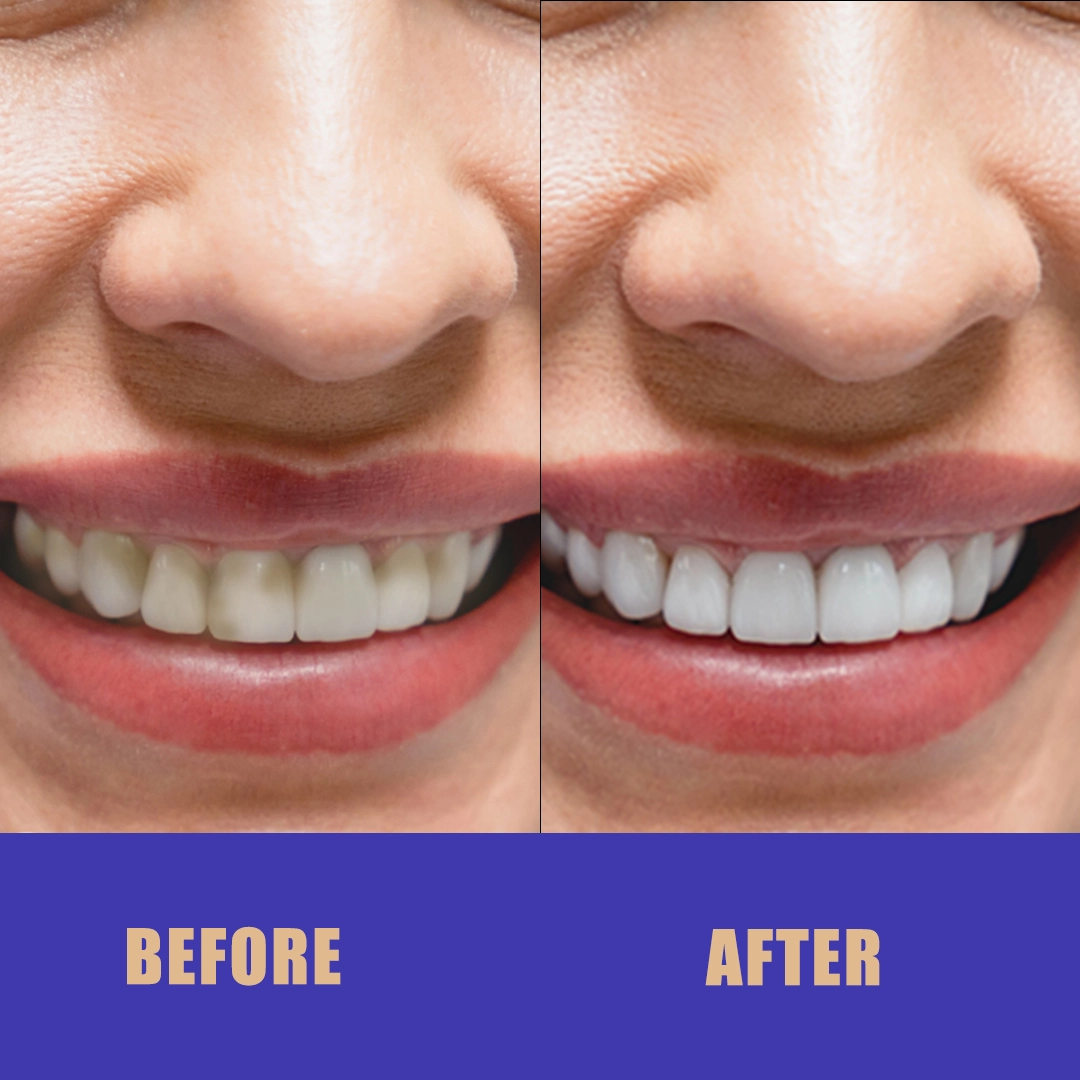The journey to a perfect smile often leads many to the veneers process. This cosmetic dental procedure, involving the application of porcelain veneers, can transform your smile dramatically.
However, the journey doesn’t end with the procedure.
Veneers aftercare is a crucial part of maintaining your new smile. It ensures the longevity and effectiveness of your veneers, keeping them looking their best for years to come.

In this comprehensive guide, we’ll delve into the veneers process, from consultation to bonding, and provide essential aftercare tips. We’ll also touch upon the cost considerations of veneers, helping you make an informed decision.
Whether you’re considering getting veneers, have recently undergone the procedure, or simply want to learn more about dental veneer maintenance, this guide is for you. Let’s embark on this journey to a healthier, brighter smile together.
Understanding the Veneers Process
Embarking on the veneers process is an exciting journey. It transforms the way you see your smile. Understanding each step of this process can help set realistic expectations.
The veneers process typically unfolds over a series of dental appointments. It starts with a detailed consultation and customization phase.
It is crucial to know the role of each step, from tooth preparation to the final bonding. Here’s a quick overview of the typical steps involved in getting porcelain veneers:
- Initial consultation and smile assessment
- Customized veneer design
- Tooth preparation for veneer fitting
- Temporary veneers placement
- Permanent bonding of veneers
Each step is critical to ensure that your veneers fit perfectly and look natural. Let’s dive deeper into these stages to understand the entire process.
Consultation and Customization
The first step in the veneers process is the consultation. This meeting is essential for assessing your dental needs and envisioning your new smile. You’ll discuss your goals with your dentist, who will examine your teeth.
Customization comes next, where the dentist designs veneers that suit your face. Digital imaging may assist in crafting veneers that align with your dental structure and aesthetic desires.
Tooth Preparation
Tooth preparation is a crucial stage where your dentist may remove a small amount of enamel. This makes room for the veneers to fit snugly. The amount of enamel removed depends on the thickness of the veneers.
Temporary veneers might be placed to protect your teeth during the interim period. This provides an opportunity to get a feel for the new addition before the final veneers are bonded.
Bonding and Final Adjustments
The final phase involves bonding the custom-made veneers to your teeth. A special adhesive secures the veneers, ensuring a durable fit. Your dentist will meticulously adjust the positioning for a comfortable bite.
Any necessary adjustments in shape or length will be made to refine their appearance. Once bonded, these veneers promise a dazzling smile with proper care and attention.
The Importance of Veneers Aftercare
Ensuring the longevity of your new porcelain veneers involves dedicated aftercare. Careful attention protects your investment and enhances the veneers’ appearance. Aftercare routines are straightforward but crucial for preserving veneer integrity.
Porcelain veneers are durable, but they require proper maintenance to remain flawless. Daily routines should focus on both cleaning and protecting the veneers from potential damage. Small daily habits can significantly impact how long veneers last.
Aftercare doesn’t just protect the veneers; it also maintains the health of underlying teeth and gums. Consistent care prevents complications such as dislodgment or staining. Knowing what practices to incorporate into your routine is key to their long-term success.
Important aspects of veneer aftercare include:
- Maintaining good oral hygiene
- Using non-abrasive products
- Scheduling regular dental check-ups
- Monitoring for any signs of veneer issues
- Avoiding foods and habits that could damage veneers
These aftercare steps are essential to ensure your veneers stay as stunning as the day you got them. Regular follow-up with your dentist further assists in keeping them in perfect condition. With diligent care, your veneers can continue to boost your confidence and smile for years.
Daily Oral Hygiene Practices for Veneers
Proper oral hygiene is crucial for the longevity of your veneers. Brushing and flossing help maintain both the veneers and your natural teeth. Daily care prevents plaque buildup, which can compromise veneer integrity.
Start with a high-quality toothbrush suitable for veneers. Soft-bristled brushes are gentle yet effective at cleaning veneers without scratching. Electric toothbrushes may offer better plaque removal with their advanced cleaning technology.
Toothpaste choice plays a vital role in veneer care. Opt for a non-abrasive formula to avoid damaging the veneer surface. Avoid whitening toothpastes, which can be harsh on veneers.
Regular flossing is essential to remove debris between teeth and near the gum line. While veneers are more stain-resistant than natural teeth, they are not completely immune. Preventive care reduces the risk of stains and discoloration.
Creating a consistent oral care routine can significantly boost veneer lifespan and maintain their radiant appearance. Embrace aftercare as a regular part of your daily life for best results.
Choosing the Right Toothpaste and Toothbrush
Selecting suitable products for your veneers is crucial. Opt for toothpaste that promises gentle cleaning without abrasive ingredients. Non-abrasive formulas protect veneers while effectively cleaning teeth.
When it comes to toothbrushes, soft bristles are recommended. They clean without etching the veneer surface. Electric toothbrushes could provide more comprehensive cleaning, but ensure they have a soft-bristle head.
Remember, the goal is to protect the veneer surface while keeping your teeth clean. Discuss with your dentist any specific product recommendations for your situation. They can guide you toward choices that best suit your dental needs.
Flossing Techniques with Veneers
Flossing between your veneers is important to prevent plaque build-up. Proper technique ensures thorough cleaning without harming the veneer margins. Use waxed floss or a floss pick to slide between teeth smoothly.
Gently glide the floss up and down along each side of the tooth. Avoid snapping the floss, which may damage veneer edges or irritate gums. Consistent flossing supports both gum health and veneer adhesion.
Consider using interdental brushes for additional cleaning. They can reach areas that are difficult with regular floss. This routine helps maintain pristine veneers and prevent possible gum issues.
Diet and Lifestyle Adjustments to Protect Your Veneers
Your diet and lifestyle significantly impact the durability of your veneers. It’s essential to make mindful choices to protect them. Veneers, although strong, are not indestructible.
Certain foods and beverages can stain or damage veneers over time. Avoiding or minimizing these helps maintain their color and condition. Similarly, lifestyle habits may need adjusting for optimal veneer care.
Regular dental check-ups complement these efforts. They ensure that any arising issues are caught early and addressed. Preventive steps reduce the need for costly repairs and extensions, keeping veneers intact longer.
To protect your investment, consider these changes as part of your daily life. Adjustments may seem inconvenient initially, but they ensure your veneers look good and last longer.
Foods and Beverages to Avoid
Some foods and drinks are notorious for staining teeth and veneers. Coffee, tea, and red wine should be consumed in moderation, as they can discolor veneer surfaces over time.
Sticky and hard foods pose a risk of chipping or breaking veneers. Sugary snacks lead to decay, which can weaken the bonding. It’s wise to be cautious about how often you indulge in such treats.
Acidic foods and beverages can erode the bonding material over time. Soda and citrus fruits are examples. Limiting these minimizes the risk of damage and helps protect your veneers effectively.
Habits to Quit or Modify
Certain habits can compromise veneer durability. Nail-biting, for instance, applies unnecessary pressure and can lead to chips or cracks. Awareness and effort to break this habit are essential.
Using teeth as tools is another practice to avoid. Opening packages or biting hard objects can damage veneers. It’s best to use proper tools for such tasks to avoid harm.
Smoking can stain veneers and natural teeth, affecting overall appearance. Quitting smoking not only benefits your veneers but also improves your oral and general health significantly.
Regular Dental Check-Ups and Professional Cleanings
Regular dental check-ups are crucial for veneer maintenance. Visiting your dentist biannually helps monitor their condition and health. Professional assessments help catch minor issues before they escalate.
Professional cleanings during these visits are essential. Dentists and hygienists use special tools to remove plaque and tartar buildup. This keeps both your teeth and veneers in good shape.
Routine check-ups also allow you to discuss any concerns with your dentist. Whether it’s unusual sensitivity or a slight change in veneer appearance, addressing issues early can prevent costly repairs.
Moreover, these appointments are opportunities for personalized aftercare advice. Your dentist tailors tips and guidance to suit your lifestyle and habits. It’s a chance to ensure you are doing everything possible to prolong the lifespan of your veneers.
Dealing with Sensitivity and Discomfort Post-Veneers
It’s common to experience sensitivity after getting veneers. This usually occurs because the underlying teeth adjust to the new coverings. Sensitivity should diminish after a few days or weeks.
To manage this discomfort, consider using a toothpaste designed for sensitive teeth. These products help by blocking the pathways to the nerves in your teeth, reducing discomfort. It’s advisable to avoid extremely hot or cold foods during this time.
If sensitivity persists, you should consult your dentist. Persistent discomfort may signal an issue that needs addressing. Your dentist can provide treatments or adjustments to ensure your veneers fit comfortably and securely. Prompt attention can prevent discomfort from becoming a long-term issue.
Sports, Activities, and Veneers Protection
Participating in sports and physical activities brings many benefits, but it’s crucial to protect your veneers during these times. Your veneers, like your natural teeth, need safeguarding from impacts.
A well-fitted mouthguard is essential for those engaging in contact sports. This protective gear can shield your veneers from potential harm by absorbing and dispersing the force from impacts. It’s best to get a custom-made mouthguard for optimal fit and protection.
Even in non-contact activities, caution is necessary. Activities like cycling or hiking can result in falls, leading to inadvertent impacts to your mouth. Using a mouthguard even during leisure physical activities provides an extra layer of defense, preserving your dental work.
Addressing Bruxism and Veneers
Bruxism, often referred to as teeth grinding, poses risks for those with veneers. This condition can lead to veneer damage due to excessive pressure and friction.
For individuals diagnosed with bruxism, wearing a nightguard is a protective measure. A nightguard acts as a barrier, reducing wear and tear on both veneers and natural teeth while you sleep.
Consult your dentist if you suspect bruxism. Early intervention can prevent complications and extend the lifespan of your veneers. They may recommend lifestyle changes or therapies to minimize this habit, ensuring your veneers remain intact and effective.
Recognizing and Managing Potential Veneer Problems
Recognizing issues with your veneers early can make a significant difference. Common veneer problems include discoloration, chipping, or sensitivity. Each of these signs requires attention to avoid further complications.
Discoloration can occur from consuming stain-inducing foods or drinks. If you notice your veneers are losing their brightness, it’s essential to revisit your dental care routine. Regular cleanings and avoiding certain beverages can help maintain their appearance.
Chipping or cracking is another concern. Even though porcelain veneers are durable, accidents can happen. If you experience any damage, it’s vital to contact your dentist promptly. Addressing these problems early can save you time and prevent more severe damage.
Sensitivity might arise post-procedure but should subside after a few days. Persistent sensitivity, however, could indicate an underlying issue. Consulting your dentist for a thorough examination will help determine the cause and appropriate solutions.
In case of any veneer issues, maintaining an open dialogue with your dental professional is key. They can provide guidance and solutions to ensure your veneers continue to enhance your smile beautifully.
Veneers Cost and Insurance Considerations
Considering veneers involves not just aesthetic improvements but financial planning as well. The cost of porcelain veneers can vary widely based on several factors. These may include the number of veneers needed, the complexity of the procedure, and the dentist’s expertise.
Veneers are a significant investment in your smile. It’s important to understand what influences the cost to make an informed decision. Exploring different dental practices can provide a broader perspective on pricing.
When it comes to insurance, coverage for veneers is typically limited. This is because they are considered a cosmetic procedure. However, in cases where veneers are necessary for functional reasons, partial coverage might be possible. Discussing your insurance options with your provider can clarify what support is available.
For a clearer understanding, consider the following list of factors influencing veneers cost:
- Number of veneers required
- Dentist’s location and expertise
- Material used for the veneers
- Additional procedures needed
It is advisable to seek a consultation with your dental professional. This session can include a thorough cost breakdown and available financing options. In some cases, dental offices offer payment plans to make the procedure more accessible.
Understanding these financial aspects ensures that you can achieve the smile you desire without unexpected financial strain. Your dentist can offer guidance on managing costs and maximizing any possible insurance benefits.
Conclusion: Ensuring the Longevity of Your Porcelain Veneers
Proper care ensures that your porcelain veneers remain stunning for years. Embrace consistent oral hygiene and regular dental visits to sustain their brilliance. Remember, simple everyday practices significantly boost their lifespan.
Avoiding harmful habits such as nail-biting or chewing on hard objects is crucial. These habits can jeopardize the integrity of your veneers. Adhering to dietary adjustments and wearing protective gear during sports also helps in maintaining their condition.
Ultimately, the key to extending the lifespan of your veneers lies in proactive and informed care. Collaborating with your dentist to address any concerns promptly will prevent potential issues. A little effort today promises a confident and enduring smile for the future.




Leave a Reply